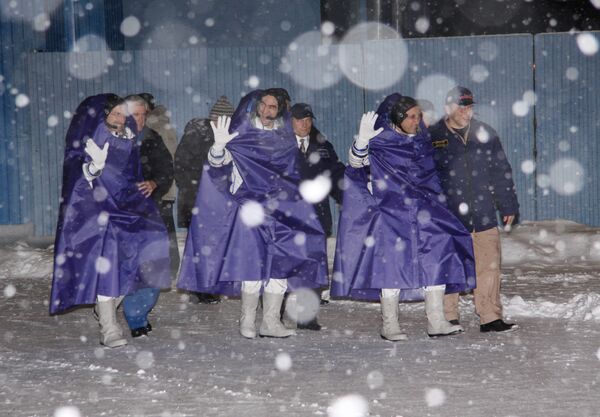Russia’s Soyuz TMA-22 piloted spacecraft has separated from the launch vehicle and reached the trajectory for the International Space Station (ISS), Russian space agency Roscosmos said on Monday.
“The separation of the spacecraft from the third stage of the carrier rocket has been carried out successful and on schedule,” a Roscosmos spokesman said.
A Soyuz-FG rocket carrying the Soyuz TMA-22 lifted off early on Monday form the Baikonur space center in Kazakhstan to bring three new crew members of the ISS.
It is the first space mission for Russian cosmonauts Anton Shkaplerov and Anatoly Ivanishin and the first flight on Soyuz for NASA astronaut Daniel Burbank, although the American has two space shuttle missions under his belt.
Soyuz TMA-22 is expected to dock with the orbital station in automatic regime on November 16 at 9.33 a.m. Moscow time (05:33 GMT).
The new crew will replace members of Expedition 28 - Russian cosmonaut Sergei Volkov, NASA astronaut Mike Fossum and Japanese astronaut Satoshi Furukawa - who will return to Earth on November 22.
During their 124-day mission on board the ISS, Shkaplerov, Ivanishin and Burbank will conduct 37 scientific experiments and evaluate the possibility of extension of the station’s service life.
The service life of the ISS ends in 2015 but participants of the project - Canada, the European Union, Japan, Russia and the United States – have recently agreed to extend its operation until at least 2020.




